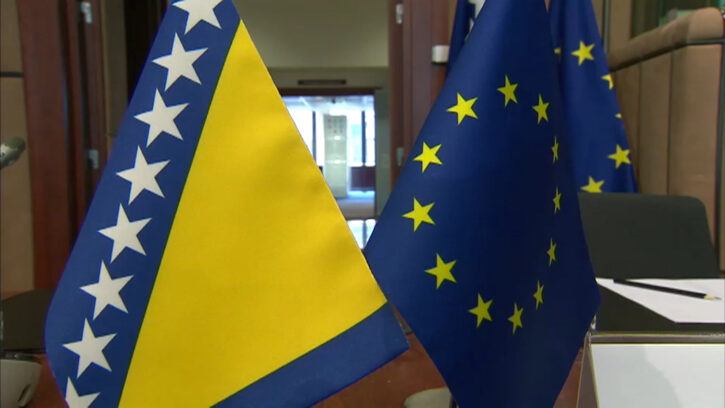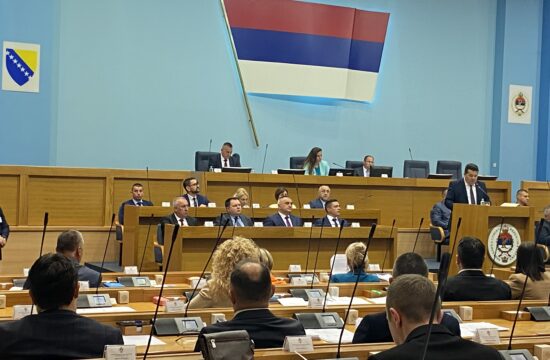
EU accession approval ratings have dropped in Bosnia and Herzegovina from 78 percent in 2015 to 56.5 percent in 2018, the State Directorate for European Integration found in its research published in "The communication strategy of Bosnia's institutions on the country's EU accession process - from the candidate status to membership."
By comparing multiple results from several years, the Directorate found that there is a lack of information regarding the country's EU accession process. Most respondents said they are mostly interested in how the accession process affects their everyday lives.
The citizens get most of their EU integration information from TV and the Internet. The ability to use EU's financial aid was at the top of the list of their interests, and few of them said they were well informed on the subject.
The Directorate's constant monitoring of the media showed that reports of the EU integration process were generalised with only a few information and made in the context of everyday political events in the country, focusing on the statements by Bosnian and EU politicians.
There is a lack of analytical texts and thematic articles, in the print, online and electronic media, in which journalists would inform ordinary citizens how much the EU accession process will affect the quality of their lives, which reforms need to be implemented and what kind of expected impact they will have, as well as which structures and in which way they can use financial assistance from European funds, the Directorate concluded.




